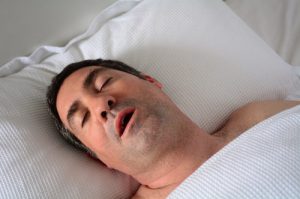 Do you often snore, loudly and almost every night? Do common sleep aids or nose strips fail to address the issue? Oftentimes, snoring can be linked to a serious disorder known as obstructive sleep apnea, or OSA. In order to control your snore issues, you need to treat the disorder behind them.
Do you often snore, loudly and almost every night? Do common sleep aids or nose strips fail to address the issue? Oftentimes, snoring can be linked to a serious disorder known as obstructive sleep apnea, or OSA. In order to control your snore issues, you need to treat the disorder behind them.
What Causes Snoring?
Why do we snore? The loud, obnoxious noise we associate with snoring occurs when breathing is partially obstructed during sleep. This can be the result of overly-relaxed soft tissue in the throat collapsing and obstructing airflow. When you breathe, air is forced through and vibrates these soft tissues. While this can be annoying, regular snoring can also be a sign of a serious disorder, on that requires immediate treatment.
Understanding Sleep Apnea
Sleep apnea develops when the airflow becomes completely blocked multiple times during the night. Once the brain notices oxygen has been cut off, you are woken up. You will likely have no memory of waking and returning to sleep, even though for some it happens hundreds of times per night, leaving them exhausted during the day. If you snore frequently, suffer from moodiness and exhaustion, and wake up at night gasping or choking, then we suggest seeing a doctor for a diagnosis. Otherwise, untreated OSA can lead to a higher risk of depression, high blood pressure, stroke, and heart attack.
How Does the Doctor Treat OSA?
There are two common treatment options:
- CPAP: The patient wears a mask over the nose and mouth, which is connected to a machine that pump air through the nose and mouth and ensures uninterrupted breathing.
- Sleep Appliance: A patient wears a device similar in appearance to a nightguard while sleeping. The device repositions the jaw, moving it forward to keep airways from being blocked.






